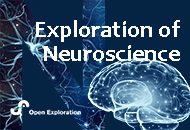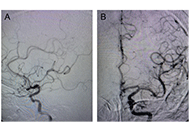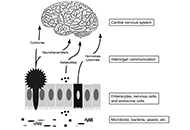3 results in Exploration of Neuroscience
Latest
Sort by :
- Latest
- Most Viewed
- Most Downloaded
- Most Cited
Open Access
Review
Multiple sclerosis with comorbidity depression and its association with vitamin D deficiency in a narrative review of the current literature
Hans-Klaus Goischke
Published: August 31, 2023 Explor Neurosci. 2023;2:160–192
This article belongs to the special issue Novel Therapeutic Approaches for the Treatment of Depression

Open Access
Case Report
Covered stent graft for treatment of carotid artery stenosis with post-stenotic aneurysm
Mosaad Soliman ... Reem Soliman
Published: August 31, 2023 Explor Neurosci. 2023;2:153–159

Open Access
Review
Modify gut microbiome in autism: a promising strategy?
Jean Demarquoy ... Caroline Demarquoy
Published: August 31, 2023 Explor Neurosci. 2023;2:140–152

Journal Information